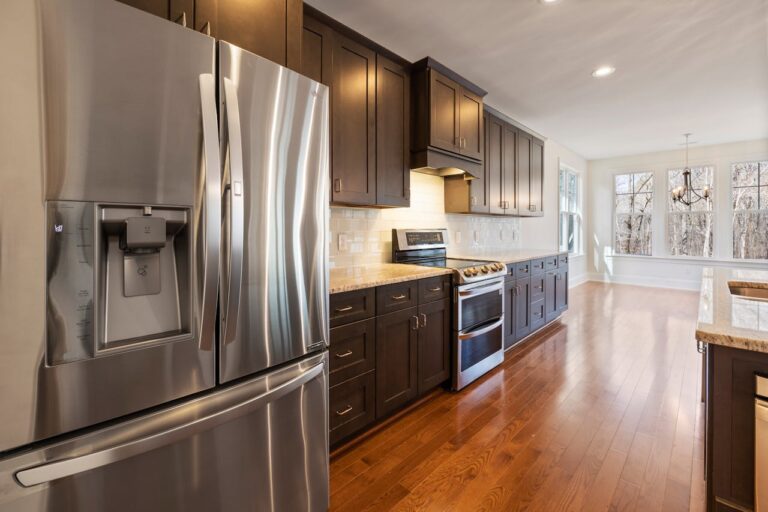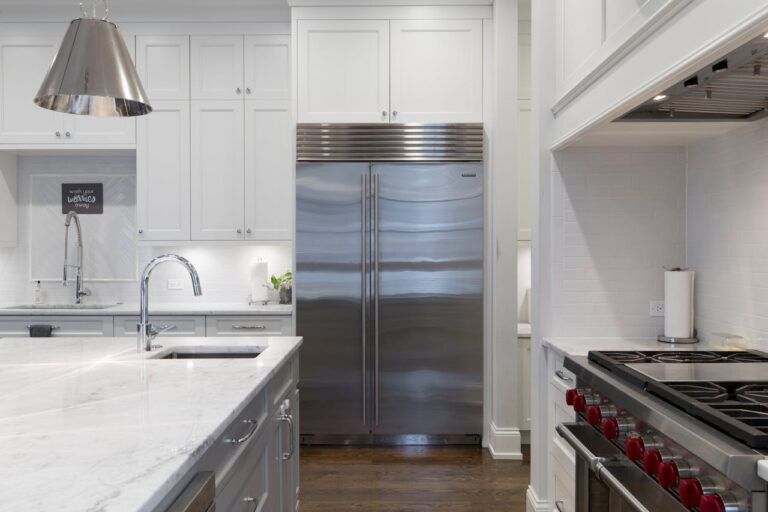Commercial Fridges & Freezers
A commercial fridge is a refrigerator designed specifically for use in professional environments. This might include restaurants, cafes, bars, supermarkets, hotels, and other businesses that require reliable food and drink storage.
Unlike domestic fridges, commercial fridges are built for heavy-duty use, offering larger storage capacity, faster cooling, and greater durability.
They are essential for keeping food and beverages at safe temperatures, ensuring compliance with food hygiene standards, and supporting the day-to-day operations of businesses that handle perishable goods.
What Are Examples Of Commercial Fridges?
Commercial refrigeration comes in many different forms depending on the type of business and storage needs. Common examples include:
- Upright fridges – Tall, cabinet-style fridges ideal for storing large quantities of food in kitchens and food preparation areas.
- Counter fridges – Refrigerated units built into work counters, giving chefs easy access to ingredients while preparing meals.
- Display fridges – Glass-fronted fridges used in shops, cafes, and supermarkets to showcase chilled products to customers.
- Under-counter fridges – Compact units that fit neatly beneath counters, commonly used in bars and smaller kitchens.
- Walk-in fridges – Large cold storage rooms that allow staff to walk inside and organise stock, typically used by hotels, supermarkets, and wholesalers.
Each type is designed with a specific purpose in mind, ensuring businesses can balance accessibility, storage space, and temperature control.
What Is The Difference Between Commercial And Domestic Fridges?
The key differences between commercial and domestic fridges lie in their design, capacity, and performance:
- Durability & Build Quality – Commercial fridges are made from stronger materials such as stainless steel, designed to withstand constant use and frequent opening. Domestic fridges are built for lighter, everyday household use.
- Cooling Power – Commercial units are equipped with more powerful compressors and cooling systems, allowing them to maintain safe temperatures even when frequently restocked or opened.
- Size & Capacity – Commercial fridges are generally larger and designed to store bulk quantities of food and drink, whereas domestic fridges are smaller and focused on family needs.
- Regulations & Safety – Businesses must meet food safety standards, so commercial fridges often come with features like precise temperature controls, easy-to-clean interiors, and alarms for temperature fluctuations.
- Cost & Energy Use – Commercial fridges are more expensive upfront and consume more energy, but they are essential for businesses that rely on reliable food storage.
In short, a domestic fridge is built for convenience at home, while a commercial fridge is built for performance, durability, and compliance in business settings.
If you need help disposing of your commercial fridge, freezer or vending machine, we provide UK-wide collections. Get in touch today to find out more about our fridge and freezer recycling services.


